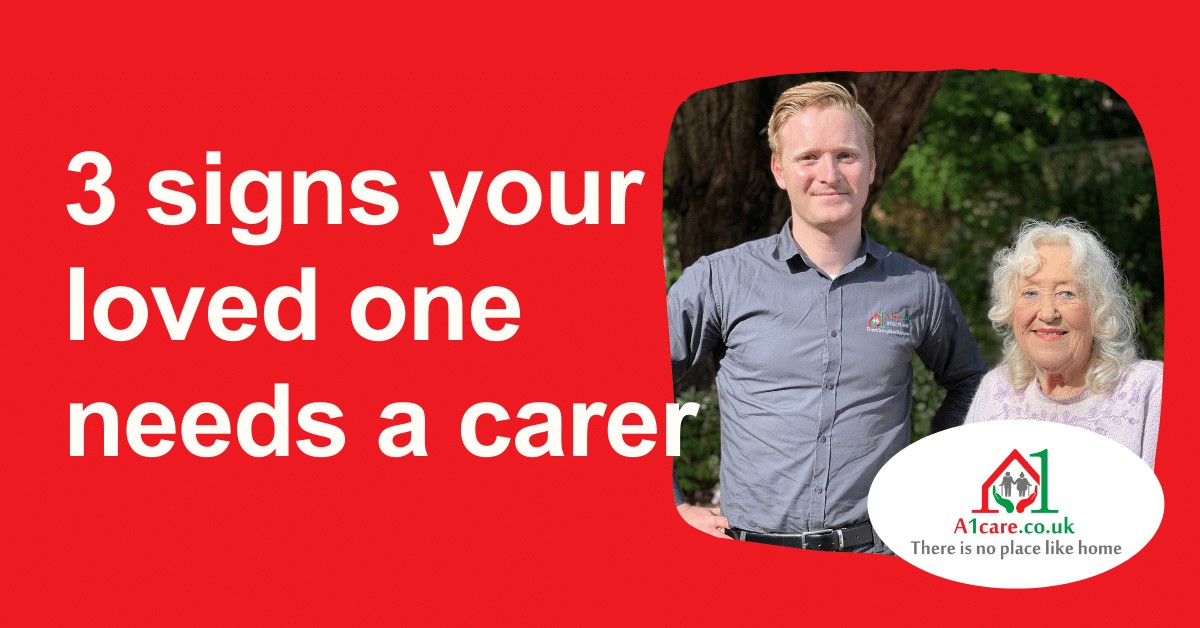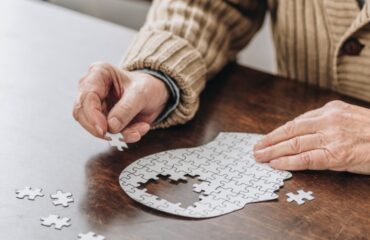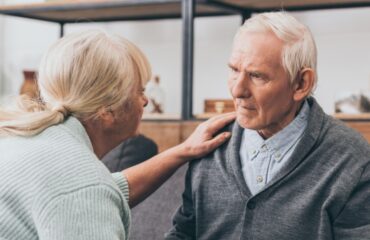Knowing when your loved one needs a carer is challenging. We want to reassure you that it’s not as easy as many might think. It’s also an incredibly turbulent time deciding if they’re fit to live independently. However, it’s essential to see the signs early as contacting a carer straight away can significantly improve the lives of the people who need it most. We want to help you continue to provide a dignified and comfortable life for your loved one.
We’ve broken down 3 of the main signs to look out for to identify if your loved one needs that extra bit of help.
Wondering about the affordability of care? Read our blog.
Signs:
They are showing signs of physical deterioration
Have they been having frequent falls? Have you noticed worsening injuries?
As we age, the ability to carry out physical jobs can become more demanding on our bodies. So, this can affect everything from looking after their appearance to performing daily tasks. When your loved one is at higher risk of having an accident, this is when you should be thinking of providing them with extra assistance like employing a live-in carer, as they can help reduce the struggles of your loved ones’ daily regime.
Personal care
A result of physical deterioration can often be seen in your loved one’s ability to keep up with their personal hygiene and appearance. This can become a prominent sign in older people who have previously taken pride in their appearance that they might need extra help. For example, have you noticed a dramatic change in your loved ones’ appearance? We want to help them remain dignified by lending a hand to keep up with their appearance. At A1 Care, we provide live-in care services to help dress, look after, and prepare for clients who have trouble doing it themselves.
Tip: Appearance and hygiene can often be challenging to bring up. So, being aware and empathetic to the problems you feel your loved one is facing is incredibly important in showing how much you care and that your concerns are coming from a good place.
Homes can be a hazard
Not all homes are the same.
Many times, a house can be unfit for an older adult because of factors such as:
- Steep stairways
- Cramped spaces and clutter
- Difficult to use appliances and unassisted units such as baths and showers.
This heightens the risk of your loved one having aches and breaks, making daily life all the more difficult. Pair that with more persistent bouts of illness and injuries, a house unfit for an elderly person can become all the more daunting for them.
How can having a carer change this?
Carers will ensure your loved ones can safely walk around without fear of hurting themselves, so homecare is a great way to combat hazardous homes. They are showing signs of mental deterioration Mental deterioration contains a broad spectrum of problems you need to look out for. Studies show that elderly people are at risk of developing mental and neurological disorders, affecting their ability to live independently.
Here are the most common:
Confusion
Have you noticed signs of confusion or a decline in the cognitive ability of your loved one? As we age, naturally, our minds become less adept at the changes happening around us, and sometimes elderly family members need a helping hand in making decisions. However, if you’re noticing more and more signs of confusion, this could be an early indicator of dementia and an inability of your loved one to live safely on their own.
This can be concerning for many reasons:
- Forgetting to take their medication
- Forgetting where they are
- Forgetting to do daily tasks
A1 Care offers home care that prides itself on helping your loved ones make decisions while keeping our clients safe from making misjudgments and forgetting things.
Loneliness
Have you noticed your loved one displaying depressive symptoms? Unfortunately, ¼ of elderly people experience loneliness in their later years. Often, older generations don’t see their loved ones nearly as often as they’d like to because family members are constantly working or have children to look after. Loneliness contributes to cognitive decline. However, carers can regularly visit your loved one, which will alleviate symptoms of lack of human contact. A carer at A1 Care understands the struggles that our elders face in these times and are proactive in giving your loved one a listening ear, being there to chat, and being willing to address their concerns.
Isolation
Often the most dangerous aspect of your loved ones’ mental deterioration is their ability to leave the house comfortably. Older people tend to struggle driving a car because they can’t react quickly to what’s happening around them and become a danger to themselves and everybody else. This is a significant blow to their independence and increases feelings of isolation. When at one time your loved one could go to the market on a Sunday or do the Saturday shopping, now they find themselves stuck inside on the weekend. Is your loved one being more withdrawn? Carers can provide travel for your loved ones, opening the world back up under the right kind of supervision.
Leaving the house has actually been found to potentially help seniors live longer!
Fact: The benefit of home care is its ability to feel less intrusive in the lives of those who choose to have it.
Social Life
As we age, inadvertently, we lose some of the people closest to us. This can hit seniors the hardest who have counted on those close connections later in life the most.
Seniors often face social stigma and challenges that are specific to growing older, such as:
- No longer having a sense of purpose
- Ageism
Have you noticed your loved ones not being as active as they once were in the community? Our carers will help attend social events so your loved one can once again feel a sense of belonging in their community. This can increase their quality of life massively!
They are struggling to be self-sufficient
Self-sufficiency is the hallmark of independence in your own home. As soon as you see your loved one is struggling, you need to think about deciding on their future. What sort of things should you keep a lookout for?
Cleanliness
Did your loved one keep the house spotless at one time? One of the first signs that an older person is losing their independence is when the house is looking a bit of a mess. A messy kitchen, dirty table tops, and untidiness around the house show that your loved one may be having trouble keeping up with basic tasks. An inability to recognize uncleanliness can often be because of underlying symptoms of dementia or mental health concerns.
At A1 Care, we can fulfill domestic duties such as:
- Laundry
- Ironing
- Dusting
- General cleaning
This means you don’t have to worry about your loved one living in an unclean environment, and they will be much happier for it!
Struggling with Finances
Seniors are one of the most victimized groups when it comes to fraudsters and people looking to snoop on their finances. Does your relative struggle to understand new ways of paying for things? As we know, older people often struggle with newer technology, and with more and more financial upkeep programs moving online, this can often feel like foreign ground to seniors. This puts them at risk of falling victim to people who don’t have their best interests at heart. Our carers can monitor your loved ones’ activity to ensure they don’t fall prey to these financial scams.
Poor nutrition and lacking food
Is your loved one finding it hard to make their own meals? Nutrition is one of the most important aspects for a senior as proper nutrition is required for them to live a long and happy life. Poor nutrition affects everything from mental deterioration to rapidly increasing physical injuries and illness. Pair that with an unstocked kitchen, and you have a real problem that needs dealing with. A carer is perfect for alleviating these issues that elderly people face.
Carers can:
- restock the kitchen
- cook nutritious meals
- ensure that they are eating at specific planned times throughout the day.
If the signs are severe, you may want to consider live-in care over a intermittent carer.
We hope this has given you a good insight into the signs and symptoms you need to watch out for to understand when your loved one might need that extra bit of help to get them through their day. Still unsure of what to do next?
Having a carer shouldn’t be seen negatively, read our blog about how a carer can help your loved one love later life.



